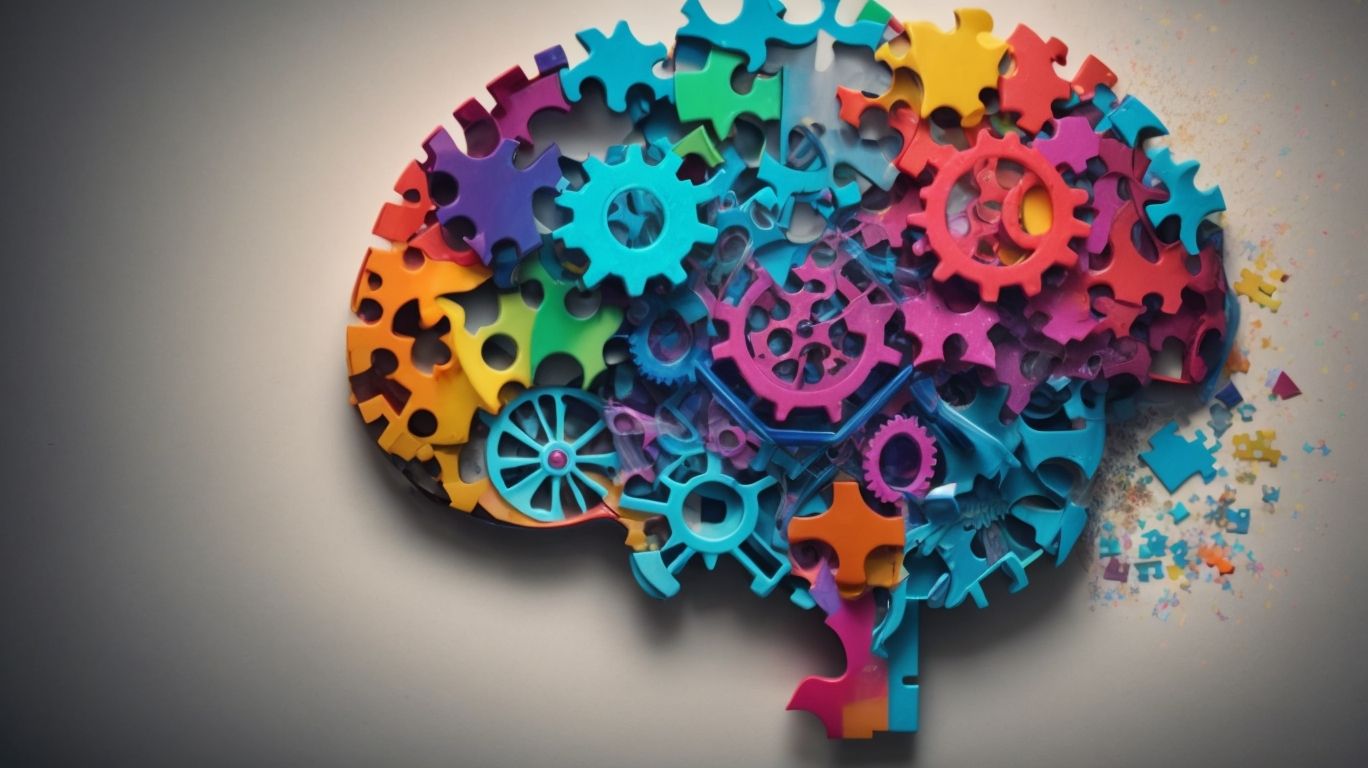Have you ever wondered why people behave the way they do? Or how you can improve your mental health and relationships? Psychology has the answers.
In this article, we will explore the importance of psychology in understanding human behavior, improving mental health, enhancing relationships, and promoting personal growth. We will also delve into the different branches of psychology, such as clinical, social, developmental, cognitive, and industrial-organizational psychology.
We will discuss practical ways you can apply psychology in your daily life to better understand your emotions, improve communication skills, manage stress and anxiety, build stronger relationships, and foster self-reflection and personal growth. Join us on this journey of discovering what psychology can teach you.
Contents
- 1 What is Psychology?
- 2 Why is Psychology Important?
- 3 What are the Different Branches of Psychology?
- 4 How Can You Apply Psychology in Your Daily Life?
- 5 Frequently Asked Questions
- 5.1 What is the definition of psychology?
- 5.2 What can psychology teach me about myself?
- 5.3 How can learning about psychology benefit me?
- 5.4 Can psychology help me overcome personal challenges?
- 5.5 What are some interesting topics within the field of psychology?
- 5.6 How can I use psychology in my everyday life?
What is Psychology?
Psychology is the scientific study of human behavior and mental processes, looking into the complexities of how individuals think, feel, and act.
Through rigorous research and analysis, psychologists aim to unravel the mysteries of the human mind and behavior, exploring various areas such as cognitive processes, emotional development, social interactions, and psychological disorders.
From psychoanalytic approaches to cognitive-behavioral therapy, psychology encompasses a wide array of methodologies to understand and address mental health issues, interpersonal dynamics, and individual differences, shaping it into a diverse field with numerous applications.
Why is Psychology Important?
Psychology plays a crucial role in benefiting individuals and society by offering profound insights into human behavior, enhancing communication skills, and fostering critical thinking.
Understanding psychological principles helps individuals navigate through different aspects of personal growth, enabling them to gain self-awareness, manage emotions effectively, and improve overall well-being.
In the realm of professional development, psychology informs organizational behavior, leadership styles, and team dynamics, contributing to enhanced workplace relationships and productivity.
On a societal level, the application of psychological concepts can lead to improved social policies, conflict resolution strategies, and a deeper understanding of cultural diversity, ultimately promoting collective well-being and harmony.
Understanding Human Behavior
Understanding human behavior is a fundamental aspect of psychology, allowing individuals to develop better relationships, hone their interpersonal skills, and navigate social dynamics with greater insight.
Through the lens of psychology, one can delve into the complexities of human cognition, emotions, and motivations, which are pivotal in shaping how individuals express themselves, interpret others’ behaviors, and form social connections.
Behavioral analysis plays a crucial role in decoding non-verbal cues, understanding personality traits, and predicting reactions in various social contexts. By being attuned to these psychological nuances, individuals can foster empathy, cultivate effective communication strategies, and build harmonious interpersonal relationships.
It is through this understanding that people can navigate the intricacies of human interaction, fostering deeper connections and meaningful exchanges.
Improving Mental Health
Improving mental health through psychology leads to personal growth, enhanced well-being, and a deeper understanding of neuroscience and cognitive processes.
When individuals engage in psychotherapeutic interventions, they embark on a journey towards self-discovery and emotional healing. By working with trained psychologists, they can uncover underlying issues, develop coping mechanisms, and navigate challenges with resilience.
This process not only fosters mental well-being but also promotes personal growth by encouraging introspection and self-improvement. Through introspective exercises like mindfulness and cognitive restructuring, individuals can rewire their thought patterns and behavioral responses, leading to positive changes in their lives.
The field of cognitive psychology offers valuable insights into how our minds process information, make decisions, and form habits. By incorporating evidence-based strategies from cognitive psychology into therapy sessions, individuals can optimize their cognitive processes and enhance their overall mental functioning.
Enhancing Relationships
Psychology plays a key role in enhancing relationships by improving communication, fostering empathy, and providing research-backed insights into interpersonal dynamics.
“
Effective communication strategies, a foundational aspect of psychological research, are essential in fostering understanding and resolving conflicts within relationships. By honing interpersonal skills, individuals can cultivate deeper connections and forge stronger bonds.
Research findings have shown that active listening, emotional intelligence, and nonverbal cues are vital components of successful communication in both personal and professional relationships. Psychology offers valuable tools for conflict resolution and mediation, guiding individuals towards constructive dialogue and collaborative problem-solving. In essence, a nuanced understanding of psychology can pave the way for healthier, more fulfilling relationships.
Personal Growth and Development
Personal growth and development are integral facets of psychology, enabling individuals to acquire new skills, knowledge, and self-awareness for continuous improvement.
By looking into the realms of psychology, one can better understand their behaviors, thoughts, and emotions, leading to enhanced decision-making abilities and improved personal relationships.
Through the study of psychology, individuals can develop effective coping mechanisms, resilience, and emotional intelligence, which are crucial aspects of self-improvement and mental well-being.
What are the Different Branches of Psychology?
Psychology encompasses various branches such as clinical psychology, social psychology, and cognitive psychology, each offering unique insights into different aspects of human behavior and mental processes.
Clinical psychology, for instance, focuses on diagnosing and treating mental health disorders through therapy and interventions. This branch deals with psychological distress, emotional disruptions, and abnormal behaviors.
Social psychology delves into how individuals interact with and influence one another within social contexts. Understanding group dynamics, conformity, and prejudice are key areas of study.
Cognitive psychology, on the other hand, explores mental processes like attention, memory, and problem-solving. It investigates how individuals perceive, think, and remember information.
Clinical Psychology
Clinical psychology focuses on assessing and treating mental health disorders, conducting research, and offering professional therapeutic interventions to promote well-being.
In the realm of mental health treatment, clinical psychologists play a vital role in providing evidence-based therapies, such as cognitive behavioral therapy (CBT) and interpersonal therapy, tailored to individuals’ specific needs.
Their research methodologies involve studying behavior patterns, cognitive processes, and emotional responses to enhance the understanding of mental illnesses and their effective treatment approaches. Through their professional practices, clinical psychologists collaborate with psychiatrists, social workers, and other healthcare professionals to deliver comprehensive care in various settings, including hospitals, clinics, and private practices.
Social Psychology
Social psychology examines how individuals interact within social contexts, studying relationships, group behavior, and communication patterns to understand human dynamics.
One of the fundamental aspects studied in social psychology is the concept of interpersonal relationships, which delves into the connections individuals form with others and how these relationships influence behavior.
Group dynamics, on the other hand, focus on how people behave in groups, exploring topics such as leadership, conformity, and group decision-making processes.
Understanding the complexities of communication theories enhances our comprehension of how information is shared and interpreted in various social settings, affecting relationships and group interactions.
Developmental Psychology
Developmental psychology explores human growth and development across the lifespan, investigating cognitive skills, emotional changes, and social behaviors in various life stages.
As individuals progress from infancy to adulthood, they experience a multitude of transformations that shape their personalities and interactions with the world around them. Developmental psychologists study how children develop reasoning skills, how adolescents navigate identity formation, and how adults cope with life challenges.
Understanding key developmental milestones such as language acquisition, moral development, and attachment patterns provides crucial insights into the complexity of the human psyche. Researchers often use longitudinal studies to track changes over time and unravel the intricate process of growth and maturation.
Cognitive Psychology
Cognitive psychology focuses on mental processes such as perception, memory, reasoning, and decision-making, emphasizing analytical skills, knowledge acquisition, and insights from neuroscience.
When exploring cognitive psychology, one delves into the intricate workings of the mind and the brain. Studying how individuals perceive the world around them, process information, store memories, and make decisions sheds light on the complexities of human cognition. Researchers in this field utilize various methodologies to investigate cognitive functions, from conducting experiments to analyzing brain activity through advanced imaging techniques. By understanding the mechanisms underlying cognitive processes, experts can offer valuable insights into how the human brain operates and how psychological theories can be applied in real-world scenarios.
Industrial-Organizational Psychology
Industrial-organizational psychology focuses on applying psychological principles in the workplace to enhance job performance, employee satisfaction, and organizational effectiveness, offering diverse career paths and opportunities.
By analyzing workplace behavior, developing assessment tools, and implementing training programs, industrial-organizational psychology professionals play a crucial role in shaping the work environment. They evaluate employee performance, identify areas for improvement, and enhance communication strategies to foster collaboration among team members. Through their expertise in areas such as leadership development, talent management, and organizational change, they contribute to creating a positive work culture that supports both individual growth and overall business objectives.
How Can You Apply Psychology in Your Daily Life?
Applying psychology in your daily life involves utilizing insights from the field to enhance understanding, improve communication skills, manage stress, and foster personal growth.
One practical way to utilize psychological insights for enhancing understanding is through active listening. By engaging empathetically with others in conversations, you can not only comprehend their perspectives better but also build stronger relationships.
Implementing stress management techniques such as mindfulness meditation or deep breathing exercises can help in effectively coping with daily stressors. Setting personal development goals and consistently working towards them can lead to a sense of accomplishment and self-improvement.
Understanding Your Emotions
Understanding your emotions through psychological insights can lead to greater self-awareness, improved mental health, and opportunities for personal growth.
Emotional intelligence plays a crucial role in how we navigate the complexities of human interactions, both professionally and personally. By acknowledging and processing our emotions effectively, we can develop a deeper understanding of ourselves and our reactions to various situations. This self-awareness allows us to recognize our strengths and weaknesses, enabling us to make informed decisions and handle challenges more adeptly.
Moreover, emotional regulation is key to maintaining inner balance and managing stress. By learning to regulate our emotions, we can respond to triggers calmly and thoughtfully, fostering healthier relationships and enhancing our overall well-being.
Improving Communication Skills
Enhancing communication skills using psychological frameworks can bolster relationships, advance interpersonal interactions, and create opportunities for career growth.
Effective communication is not just about exchanging words; it’s about understanding emotions, perspectives, and intentions of others. By incorporating empathy and active listening techniques, individuals can build trust, resolve conflicts, and foster deeper connections both personally and professionally.
Mastering non-verbal cues such as body language, tone of voice, and facial expressions plays a crucial role in effective communication. These subtle signals can convey confidence, respect, and openness, leading to smoother interactions and improved rapport.
Managing Stress and Anxiety
Psychology provides valuable tools for managing stress and anxiety, offering coping mechanisms, relaxation techniques, and insights into mental health resilience.
One essential stress management strategy involves practicing mindfulness meditation, which helps individuals focus on the present moment and alleviate anxiety.
Engaging in regular physical exercise not only improves physical health but also releases endorphins that act as natural stress relievers.
- Setting boundaries in relationships and at work can also reduce stress by preventing overwhelm and burnout.
- Creating a daily routine can provide structure and stability, helping to manage stress through predictability.
Building Stronger Relationships
Building stronger relationships through psychological principles involves fostering empathy, effective communication, and understanding interpersonal dynamics for meaningful connections.
Empathy plays a crucial role in creating a strong foundation for any relationship. It requires the ability to step into someone else’s shoes, truly understand their feelings, and respond with kindness and compassion. Active listening is another key component, allowing individuals to fully engage with their partners, acknowledging emotions and perspectives without judgment.
Mastering effective communication techniques such as clear expression and attentive listening can bridge gaps in understanding and prevent conflicts from escalating. Conflict resolution strategies, like addressing problems constructively and seeking mutually beneficial solutions, can strengthen bonds while promoting mutual respect.
Self-Reflection and Personal Growth
Engaging in self-reflection guided by psychological principles can facilitate personal growth, skill development, and continuous self-improvement for a fulfilling life journey.
Self-reflection allows individuals to gain a deeper understanding of their thoughts, emotions, and behaviors, paving the way for introspection and positive change.
By examining one’s actions and beliefs, people can identify areas for improvement and set meaningful goals that align with their values and aspirations.
Through this process, individuals cultivate a growth mindset and a strong sense of self-awareness, which are essential for navigating life’s challenges with resilience and clarity.
Frequently Asked Questions
What is the definition of psychology?
Psychology is the scientific study of the mind and behavior, including thoughts, feelings, and actions.
What can psychology teach me about myself?
Psychology can help you understand your thoughts, feelings, and behaviors, giving you insight into your motivations and helping you make positive changes in your life.
How can learning about psychology benefit me?
Discovering what psychology can teach you can lead to improved relationships, better communication skills, and a greater understanding of human behavior, among other benefits.
Can psychology help me overcome personal challenges?
Yes, psychology can provide you with tools and techniques to overcome personal challenges, such as managing stress, coping with anxiety, and improving self-esteem.
What are some interesting topics within the field of psychology?
Some interesting topics within psychology include cognitive psychology, social psychology, developmental psychology, and abnormal psychology, among others.
How can I use psychology in my everyday life?
You can use principles of psychology in your everyday life by applying techniques such as mindfulness, positive thinking, and effective communication to improve your well-being and relationships.



